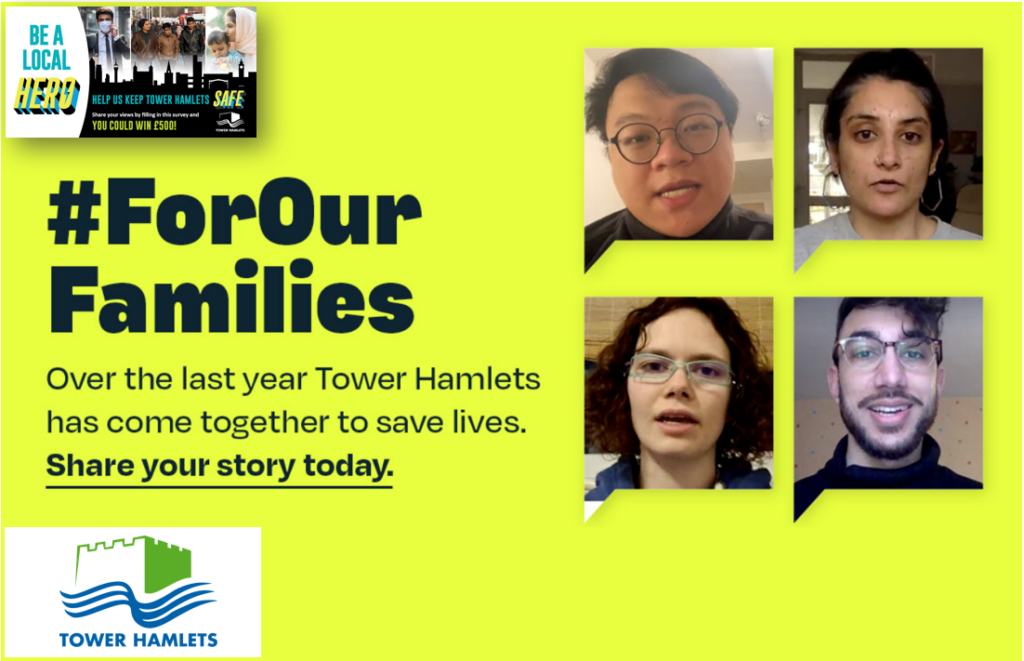London Borough of Tower Hamlets
Autumn 2020 to Summer 2021
Autumn 2020 to Summer 2021

The challenge
With the country in the middle of winter lockdowns in late 2020 and early 2021, reported cases of COVID-19 in Tower Hamlets were increasing. There were fears that things could become even worse, in a borough which had already been hit very hard. In particular, the numbers were very high among those aged 19-34.
We were asked to look at attitudes among different sub-segments of this cohort of young adults, around COVID-safe behaviours such as vaccine uptake and mask-wearing. The aim was that this insight would feed into a social marketing campaign by the local authority, targeted at young adults and promoted across the borough.
What we did
Part of the challenge lay in reaching out to these young adults who were hard to reach in the first place. We constructed an online survey, targeted those living in the borough, which offered a £500 incentive to residents who took part. The rationale for this was based on previous research with young people in urban areas, which had found that this busy aspirational group tended to be time-poor as well as money-poor. The marketing for the survey, based on being a ‘local hero’ tapped into many of these values.
In addition to this, we circulated the survey using word-of-mouth and social networks, to reach beyond the online community in the borough. And we made extensive use of trusted third parties, such as sports coaches, tutors and employers. Through these partners we were able to conduct 80 quality conversations with our target cohort.
The final questionnaire received 279 responses which, taken together, helped to give us a really clear sense of how young people in Tower Hamlets saw COVID-safe behaviours.
As part of the research we tested a range of motivating factors, and found that the most effective were those which built a sense of agency. The winning strapline emphasised that people had the power, through their personal decisions, to influence how quickly life got back to normal.
What happened
The findings revealed that household mixing was the biggest area of non-compliance, and that a concern for older family members was the strongest countervailing motivation. The insight also revealed a strong perception that others are not following the rules, which led rules to breakdown. And there were also questions of trust – both about the logic underpinning the rules themselves, and about the motives of decision-makers more generally.
As a result of the work and the recommendations we put forward, a #ForOurFamilies campaign was developed across the borough, emphasising individual agency and power to protect others. We inputted into this as it was developed and evaluated its subsequent impact.